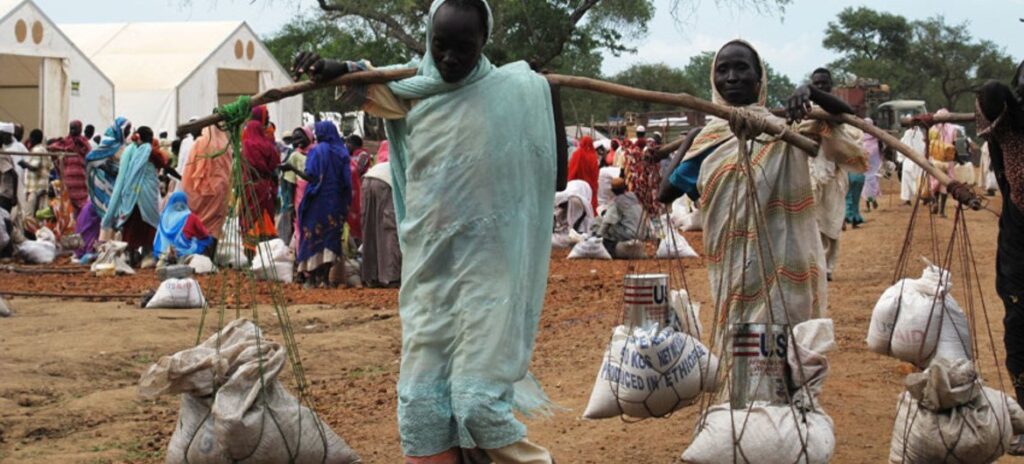The U.N. World Food Programme (WFP) said Thursday that severe funding shortages have forced it to slash food rations for nearly 780,000 refugees in Ethiopia, pushing already vulnerable populations toward rising hunger.
The cuts, which began in October, reduce rations from 60% to 40% of a full food basket. This provides each person with less than 1,000 calories per day — less than half the recommended daily intake. Only 70,000 newly arrived refugees fleeing conflict in neighboring Sudan and South Sudan will continue to receive full rations for the next six months.
Ethiopia hosts one of the largest refugee populations in Africa, including many from Sudan and South Sudan.
“We are making impossible choices,” said Zlatan Milisic, WFP’s country director and representative for Ethiopia. “Without more funds, these reductions are just another step towards stopping food distributions completely, putting the lives of those we currently assist at risk.”
Milisic emphasized the immediate human impact: “This isn’t a future risk — it’s happening right now. Every ration cut is a child left hungrier, a mother forced to skip meals, a family pushed closer to the edge.”
The agency is urgently appealing for $230 million to sustain its humanitarian operations in Ethiopia for the next six months. Without immediate new funding, WFP said it could be forced to completely suspend all food assistance for refugees in the coming months.
The situation is also critical for specialized nutritious foods provided to malnourished children and mothers. WFP warned that its supplies are expected to run out completely by December. If that happens, support for one million malnourished children and pregnant and breastfeeding women would end.
WFP issued a similar appeal in April, and donors responded to keep its nutrition programs running. The agency is now facing a renewed funding crisis.
In addition to the refugee crisis, WFP is working with the Ethiopian government to support 700,000 people in the southeastern Somali region, an area hit by both localized drought and flooding. The agency is stretching limited supplies there to continue providing full rations.
“Our operations have been hanging by a thread for months now,” Milisic said. “This is not only undermining our ongoing support to food insecure Ethiopians and refugees, but also our preparedness to respond to new crises.”
This is the second time WFP has reduced rations for refugees this year, after a previous cut in May. The gap between humanitarian needs and available resources has continued to widen.
Between January and October, WFP supported 4.7 million people in Ethiopia with food and nutrition assistance, school meals and resilience programs. Beyond funding, the agency said ongoing insecurity, particularly in the northern Amhara region, continues to disrupt its humanitarian operations.




